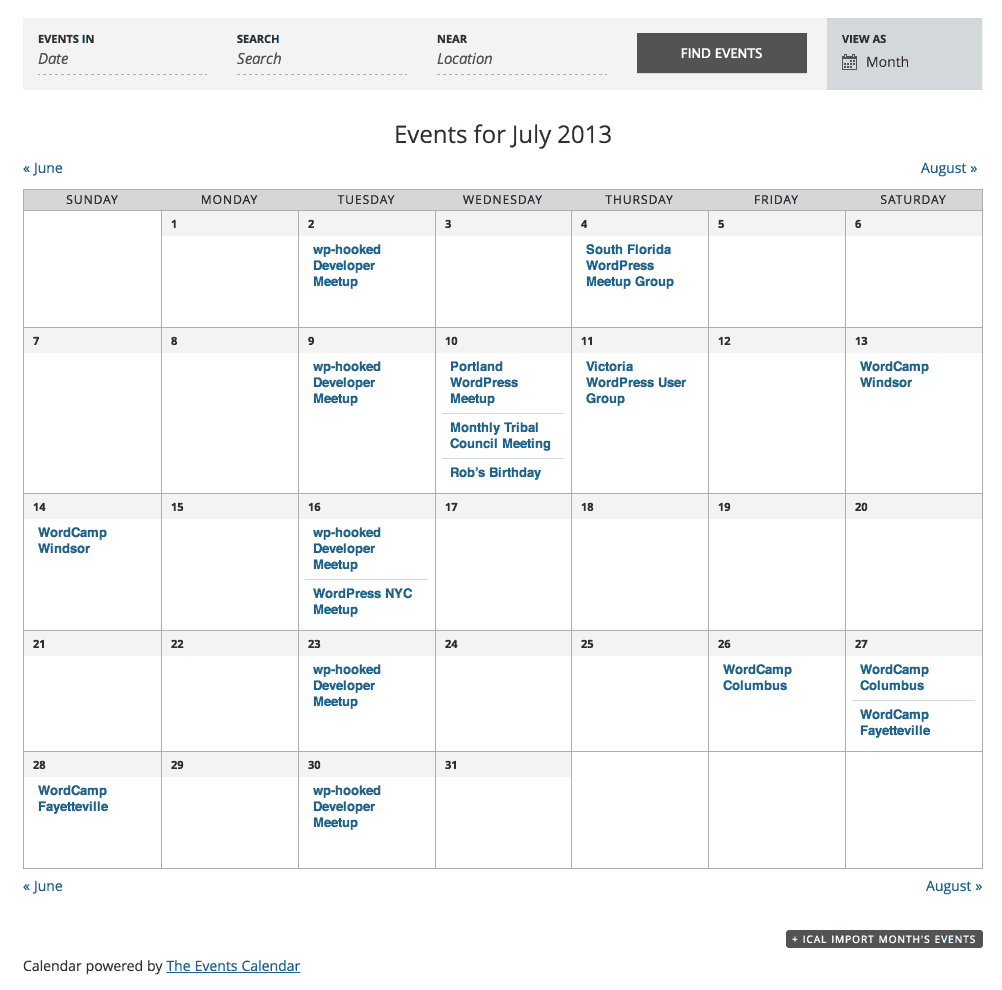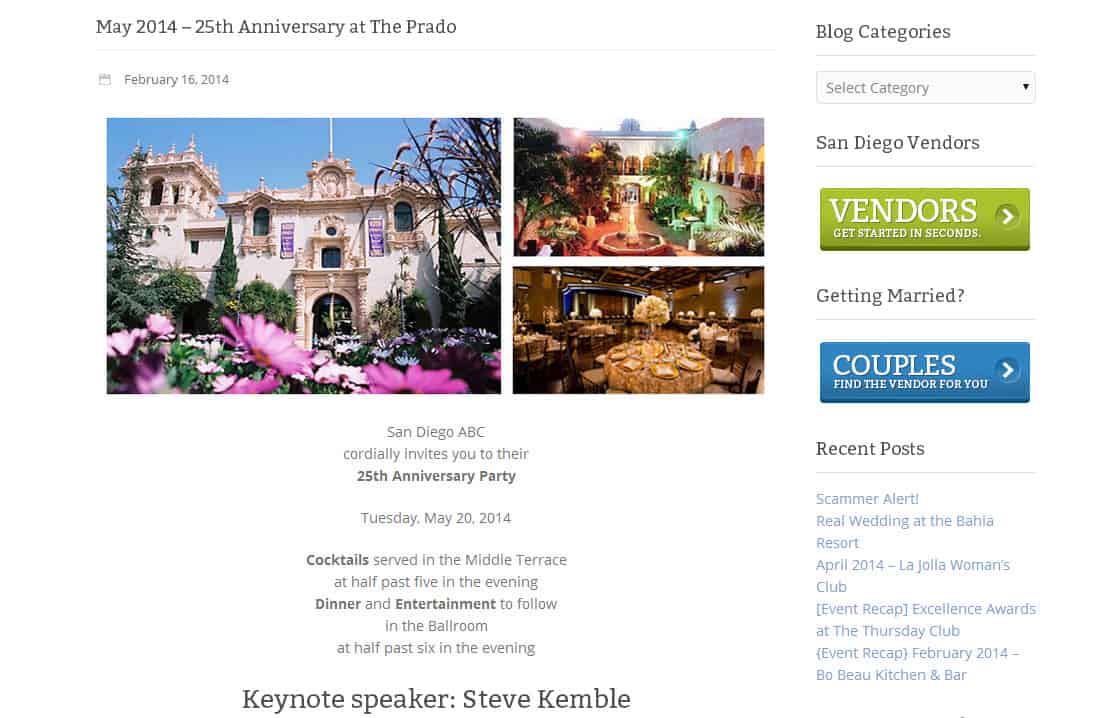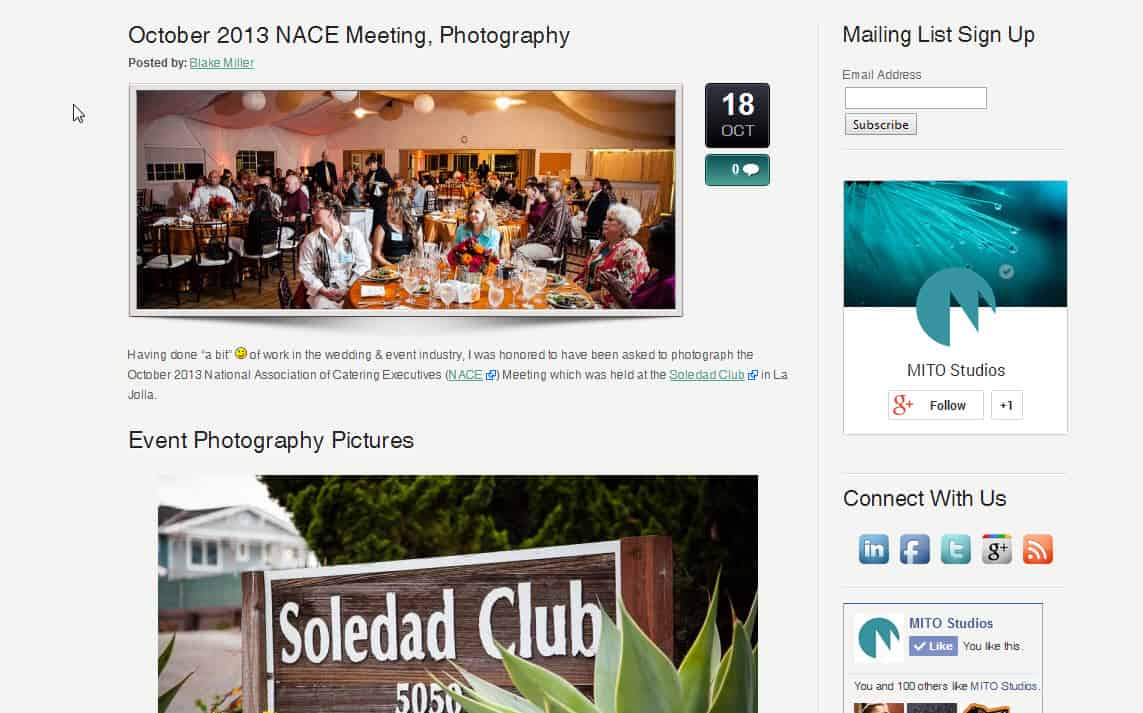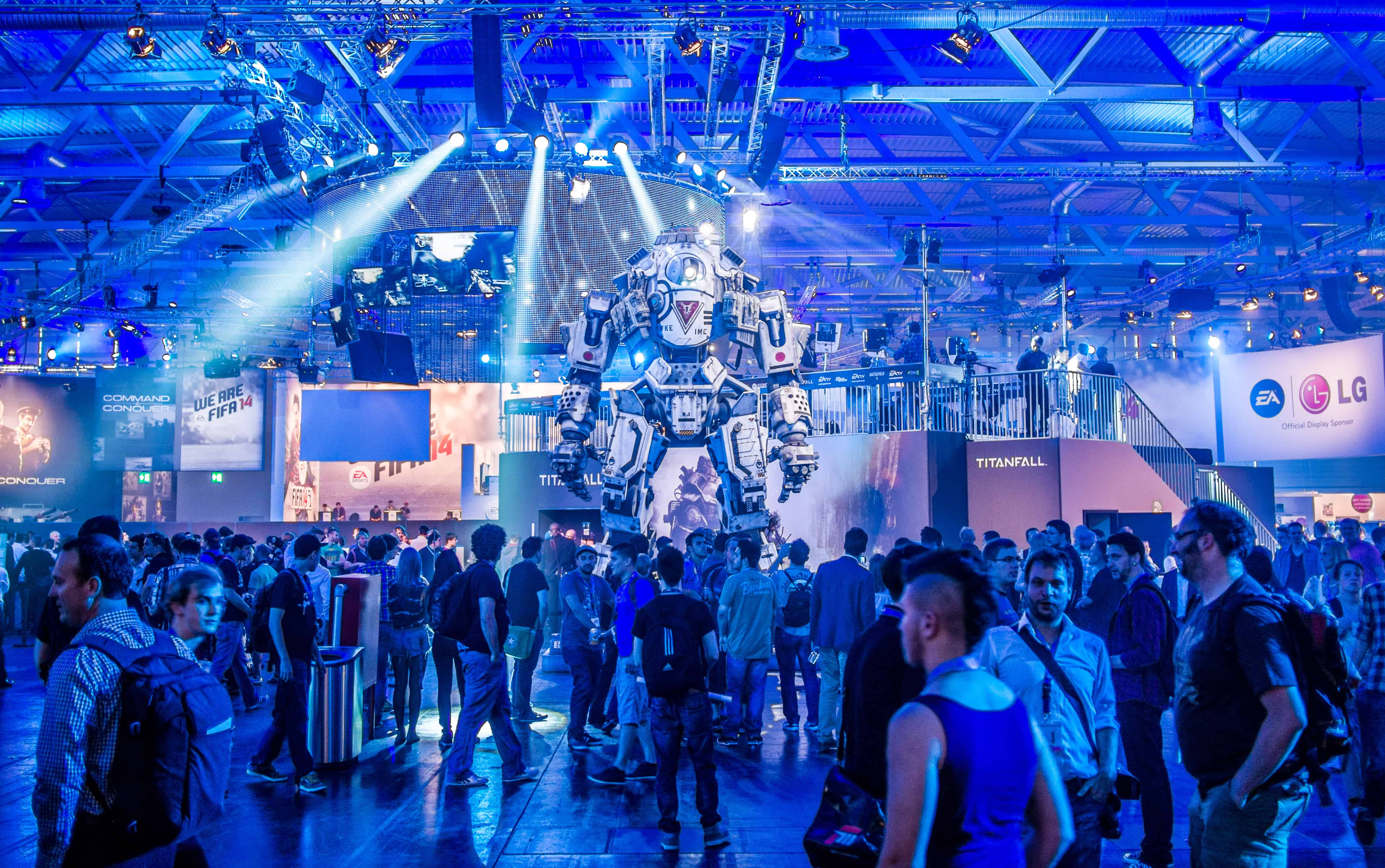Many businesses, groups, organizations and nonprofits put on, host and/or sponsor Events. Naturally, their website becomes a marketing, communications, advertising and management platform for these events. How their website is used for events vary from client to client and site to site and with anything – there are good ways and not-so-good ways to use your website for Events.
Using a Blog Post as the official Event page?
We have had many new clients with with old blogsites, or poorly configured blogsites and/or mis-guided approach to how they deal with events on their website. Many times, a blog post was used as the official Event page with Details, Information, a picture or graphic or two, and Links/buttons or even embedded signup forms to RSVP. Sometimes there was no other choice. This isn’t necessarily a bad thing as long as each event posting is consistent (good for your admins and your users) and you post all of the necessary information for your users and guests (The 5 Ws) More importantly, it’s not a bad thing when there is no other platform for your Events.
While a doable solution, one of the biggest flaws on using blog posts for events is the chronological order that posts are displayed, so unless you pre or post-date posts, then they won’t show up in the actual order. Plus, if you post-date a blog post, many blog platforms such as WordPress will keep the post hidden as a “scheduled” post until the date/time hits, then it goes live. As such, I’ve had clients constantly update and swap back and forth the blog post dates to multiple events to control the order they’d show up on an “Events” blog. Just thinking about that hurts my noggin’ ;)
Done Proper: Back to Blogging & Posts
As such, what happens when a dedicated Event Calendar is designed into your blogsite? Or if you use a dedicated 3rd party platform such as Eventbrite. The blog takes on a different meaning. The blog can now be used what it was originally intended for. . . an online diary, a chronological journal, a platform where content (text, images, media) are “posted” and displayed in chronological order, typically with the most recent “post” shown first. The idea is that your blog is a living, breathing entity . . which actually speaks about yoru organization too (nothing worse than seeing the “latest post” dated 2.5 years ago. “Did they go out of business?”)
If your website is setup and configured properly, these “posts” will show up and be communicated throughout different areas of your site and/or communication mediums. They may show up on the home page, maybe in the sidebar, the RSS feed (for geeks who follow RSS feeds ;) and if taken to another level, advanced features such as an automated emails via your email marketing platform using “RSS to Email” technology, or emailed out to anyone who “subscribes” to your blog via a service such as Feedburner.
How To Use Your Blog for Events?
So, what is the Blog used for when you have both an Event Calendar and a traditional Blog in your website? Here are some of the most common uses of your Blog when it comes to Events.
- Save The Date Announcements, when you set the final details and ready to announce to the public.
- Changes to the Event that should be highlighted. Typically done anytime between the Save The Date and the actual event. Maybe you’ve recently added a new headliner performer, or moved the venue location.
- Final reminders to RSVP – typically done as your final RSVP date nears. This would be in addition to other communication methods such as emailing your invite list, email marketing list, social media postings, etc.
- Post-event reviews, recaps and pictures – this is a big one – it’s important to keep the energy alive from the event for your users and guests. They show that your group is active and finally, event reviews are a great source of advertising and marketing next year’s or the next similar event. (I can’t tell you how many times working with clients to promote an upcoming event and where there are NO pictures, no reviews nothing from previous years events that all took place, that all had pictures taken at, etc.)
In summary, the blog then becomes the platform for announcing details, highlights, reviews and recaps about an event. Of course, “blogging” takes energy, time, resources so there does become a balance as to how much you should do versus how much you can do. Just remember, the more you blog, the better your site, your online presence and who knows . . your organization will do. I’ve seen it firsthand.

Using a dedicated Events Calendar built into your blogsite.

Using a Blog Post as Event Posting

Using Blog to Recap Events. This case a simple description, and alot of pictures.



Leave A Comment